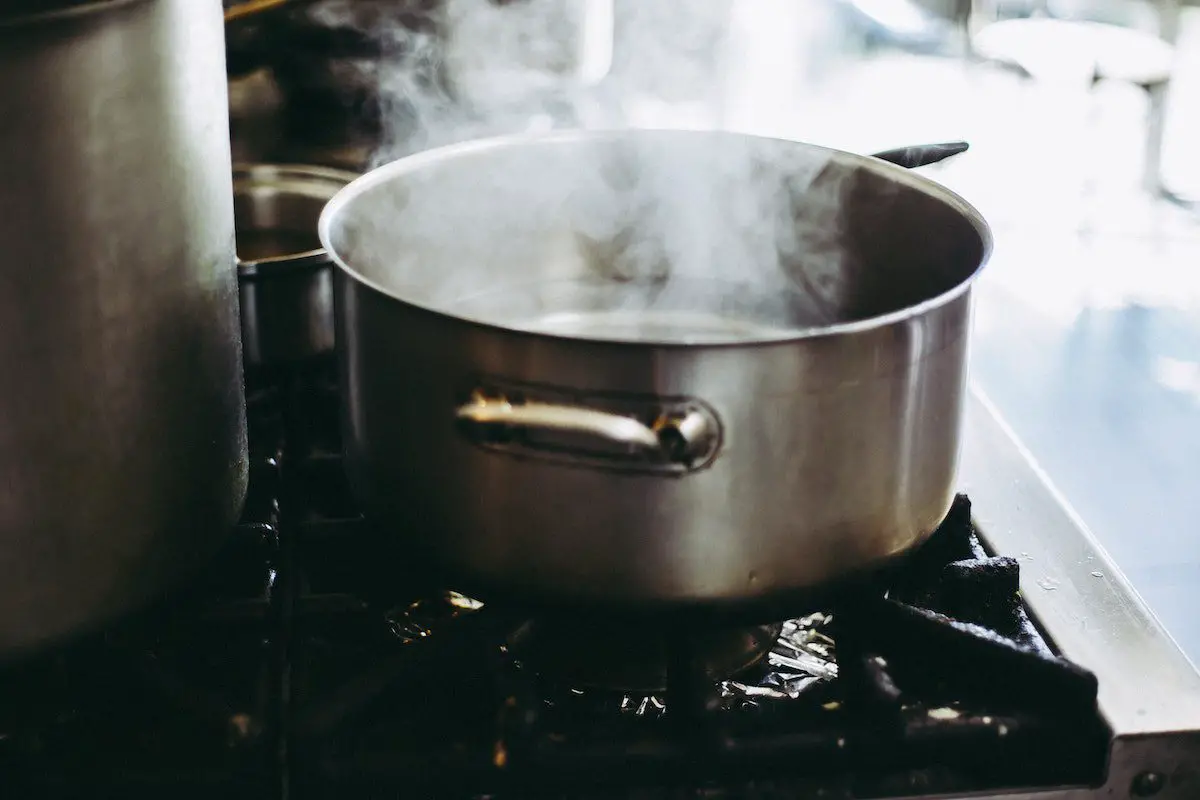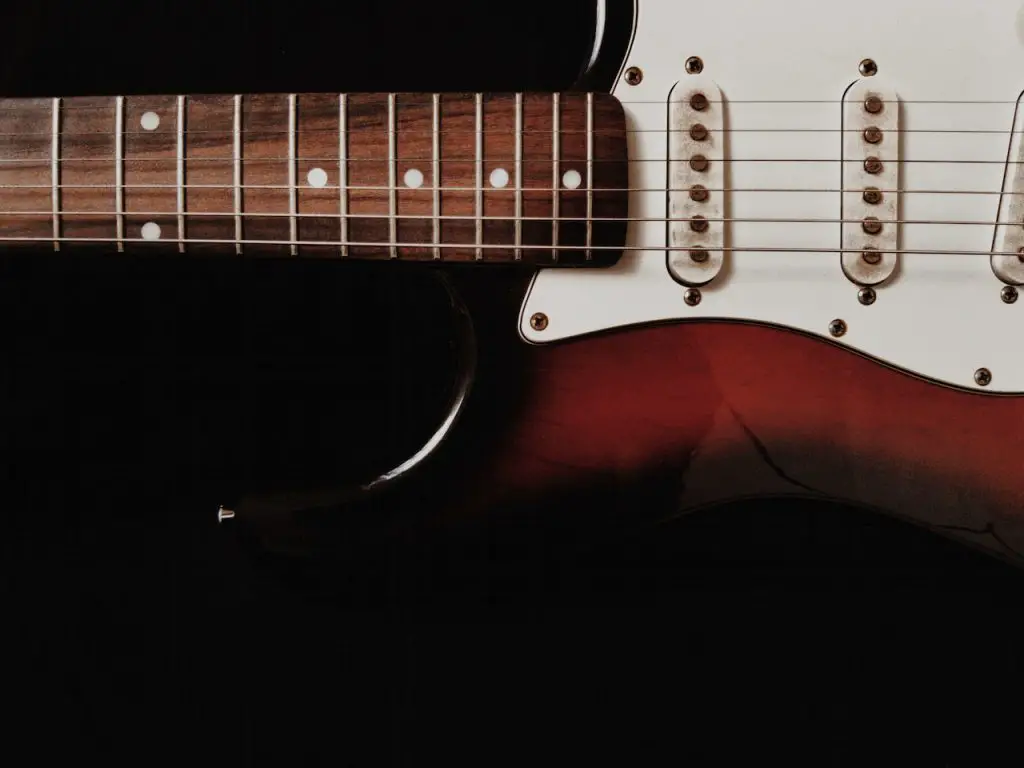If you’re a seasoned guitar or bass player, chances are you’ve encountered the somewhat curious practice of boiling strings. So why do guitarists and bassists do this, and does it work? The answer might surprise you! Let’s debunk common myths and misconceptions and explore the real truth about this practice.
Why do guitarists and bassists boil their strings? Some players boil their strings to enhance their sound quality. It cleans and relaxes new strings, speeding up the break-in process, and helps them stay in tune by stretching them.
Why do guitar and bass players boil their strings?
Guitar and bass players boil their strings, and it’s not some strange musical ritual. It’s got some solid logic behind it. You see, strings gather all sorts of junk over time – dirt, sweat, finger oils, you name it. Boiling the strings can remove this accumulation of grime from the string’s surface and from within the windings.

This deep cleanse brings several advantages, such as:
1. Better sound
Boiling your strings in plain water (some folks swear by adding a bit of vinegar, but that’s a whole other story) can strip away this buildup, giving your strings a new lease on life. They’ll sound brighter, more like they did straight out of the pack. And let’s be real, who doesn’t love the sound of fresh strings?
2. Longer lifespan
Let’s face it. Bass strings aren’t exactly what you’d call cheap, especially compared to guitar strings. For all you up-and-coming artists out there, splurging on new strings every month might not be the most wallet-friendly move. That’s where this practice of boiling strings can work like a charm.
Some players believe that the lifespan of bass strings may be doubled by subjecting them to repeated boiling…
Some players believe that the lifespan of bass strings may be doubled by subjecting them to repeated boiling, making them cleaner and brighter. If you’re saving yourself from buying a new set of strings every month or two, you could be looking at a hundred bucks or more in your pocket every year.
But hey, don’t just rely on boiling. Wipe your strings down after every jam session or gig, and you’ll see them lasting longer, sounding better, and saving you some of that hard-earned cash.
3. Faster break-in
Got a new set of strings that’s tighter than the last pair of skinny jeans you tried on? Well, boiling can reduce its tension and help speed up the break-in process. Boiling can also help your strings stretch out a bit, making them less likely to go out of tune.
AKAI Professional MPK Mini MK3

AKAI Professional MPK Mini MK3
How does boiling the strings affect the sound?
Every instrument, including the guitar, creates sound through vibration. Your guitar’s sound comes to life when the strings vibrate and send that motion from the frets to the bridge and then into the instrument’s resonance center (the soundbox or pickup, in the case of electric guitars).

Now, the rate at which these strings can repeat their repeating oscillating motion in a certain time is known as their vibration frequency (ordinarily measured in one second). Therefore, there will be less of an opportunity for a sound to travel down the strings if they are heavier and move more slowly.
Usually, this isn’t a big deal when we’re talking about the lowest frequencies (the note the string is producing). But strings also vibrate at what we call overtones or harmonic frequencies, which are integer multiples of the fundamental frequency.
When gunk builds up in a string, it’s like it’s carrying extra weight, and that can dampen its ability to vibrate at these higher overtone frequencies. The result? Your overall tone might sound a bit flat or muted. So, it makes sense to boil the strings in order to eliminate the foreign chemicals that stop them from moving and sounding like they should.
How to boil your strings?
To get started, gather up your ingredients: an old set of strings, a large saucepan, a trusty fork (or any stirring tool you prefer), tongs, and a handy towel.
- First, roll up each string into a tight cylinder, just as you would with a brand-new set. Next, a pot of water has to be filled. While distilled water is the ideal choice, regular ol’ tap water will work just fine if that’s what you’ve got.
- The next step would be to put the pot on the burner and turn up the heat. Just drop the strings one at a time as the water begins to boil. Use tongs to prevent accidental burns. You won’t have to spend an eternity boiling them; the procedure should take 3-5 minutes for most strings, including electric guitar strings. Bass strings might need a bit more simmering time, up to a maximum of 15 minutes.
- Carefully remove strings from the pot after boiling (five or fifteen minutes). To avoid injury, use tongs for this task. After taking the string from the pot, set it on the dry towel. Before moving on, thoroughly dry them with a towel.
- If you have tin foil, you can use it to speed up the drying of the strings. Each string will be individually wrapped in tin foil, which will then be perforated many times to allow air to circulate within.
- Pop the foil-wrapped strings in the oven on the lowest setting and let them warm up for about fifteen minutes. Once they’ve cooled down to a safe temperature, they’re good to go.
When should you not boil strings?
When it comes to boiling strings, it’s not a magical fix for all string woes. There are certain situations where boiling is not the way to go. Here’s what you need to know:
- Damaged strings: If your strings are already damaged, like sporting a kink or some other physical flaw, boiling won’t magically repair them. In fact, it might even make matters worse. Weak spots can become even weaker under the stress of boiling water. So, when faced with physically damaged strings, it’s best to replace them with a fresh set.
- Rusty or corroded strings: If your strings have rusty or corroded spots, boiling won’t save the day. You see, the metal itself is being degraded by corrosive or acidic elements, which is what causes that unpleasant, discolored appearance. Boiling won’t reverse that damage. In cases of rust or corrosion, the best solution is to say goodbye to those strings and bring in a shiny new set.
- Coated strings: Now, let’s not forget about coated strings. These babies have a protective layer (typically made of Polytetrafluoroethylene) covering the windings, which keeps dirt and corrosion at bay. So, coated strings won’t benefit as much from boiling since they’re already designed to resist those unwanted intruders. Cleaning coated strings shouldn’t be necessary in the first place.
If you want even more tips and insights, watch this video called “Boiling Guitar Strings: Does it Actually Work?” from the SpectreSoundStudios YouTube channel.
Frequently asked questions (FAQ)
Do you still have questions? Below are some of the most commonly asked questions about boiling strings.
What does boiling your bass strings do?
You can get a brighter tone from your bass strings by boiling them and then replacing them; this can also clean the string in the process.
Are you supposed to boil guitar strings?
Strings for a guitar or bass may be cleaned by boiling them in water, but this won’t repair any structural damage. Also, the amount of time and work it takes to boil and restring an instrument like a guitar or bass may make it impossible.
How long should you boil strings?
Restoring your guitar’s string tension is as simple as removing all the strings, wrapping them up like they’re brand new, and then boiling them for 5 minutes. Then let them cool down before replacing them.
How often should bass strings be changed?
If you play the bass regularly, you should replace the strings every six to eight weeks. To prevent string breakage, a touring bassist will have his bass strings replaced every third or fourth gig.
Conclusion
That’s all we have for you today. We hope that our post has cleared up a few common misconceptions and given you the knowledge to make the most of this useful technique!
So, do you also boil your guitar strings? And did I cover everything you wanted to know? Let me know in the comments section below. I read and reply to every comment. If you found this article helpful, check out my full blog for more tips and tricks on music production. Thanks for reading, and never stop making music.
Key takeaways
This article covered why bass player boils their string, how boiling affects string sound, and how to boil strings. Here are some key takeaways:
- There are a variety of factors that lead bassists to boil their strings.
- Vibration is the basis for the production of sound in all instruments.
- Some people may recommend boiling a fresh set of strings.
- Extra tips:
- A set of new strings is the best use of your discretionary funds.
- Since all bass guitar strings are wound, this setup makes more sense.
- Boiling guitar and bass wound strings is a way of cleaning between their windings, between their outer layer and their core.
- Since dirt collects in the grooves of wrapped strings, they are harder to clean.
- For the best results, boil your bass guitar strings for 15 minutes.















